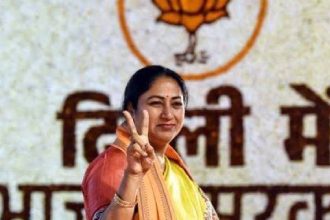
New Delhi: A friend recently shared a frustrated remark, “I’ve reached a point where it’s either me or the millennial junta!” It was uttered with a half-laugh, but beneath it lay the very real tension many leaders feel in today’s corporate corridors. This sentiment, spoken by a seasoned executive in the knowledge sector, encapsulates a dilemma faced by an entire generation of managers and business leaders in India as they try to navigate the complexities of leading millennials and Generation Z in the labyrinth of its work culture. After all, there is no one-size fits all culture that India can boast of.
The clash is not so much about technology or skill but a more fundamental difference in ethos. As India’s knowledge sectors flourish—driven by tech advancements, startups, and evolving service industries—the expectations of work have dramatically shifted. In the past, careers were shaped by a certain hierarchical deference, where loyalty, job stability, and respect for seniority formed the cornerstone of the professional relationship. But today, millennials and Gen Z, often referred to as digital natives, bring to the table a radically different outlook on work and life.
For many in older generations, work has been often an all-consuming pursuit. Success was measured by longevity, and long hours at the office were worn as a badge of honour. But for millennials and Gen Z, the lines between work and life are much blurrier. They are vocal about wanting flexibility, not just in hours but in location and even job roles. Work is not the centrepiece of their existence, but rather one aspect of a broader canvas of personal fulfilment. The meaning of loyalty has transformed too—it is not bound to years of service but rather to an organisation’s alignment with personal values and a sense of purpose.
This shifting dynamic is creating friction. Leaders, many of whom came of age in the boom years of liberalisation, are now facing a workforce that questions the very structures that made these leaders successful. The top-down, command-and-control style of leadership feels archaic to younger employees, who instead seek collaboration, feedback loops, and a sense of ownership over their projects. This is not necessarily out of disrespect but a reflection of their experience growing up in a world where access to information and opportunities has been democratised.
In India, this generational conflict has a unique flavour. The cultural weight of respecting elders is deeply ingrained, and for many senior leaders, the expectation is still that their authority will not be questioned. The idea that a younger employee could outright challenge a superior’s decision feels unsettling, even disrespectful. And yet, for the younger workforce, this willingness to speak up is not born from rebellion but from a sense of personal accountability and a desire for transparency.
The challenge for today’s leaders, particularly in the financial and knowledge sectors, lies in recalibrating their approach. It is no longer enough to rely on experience alone; leaders must now exhibit empathy, adaptability, and a willingness to embrace change. But this shift is not without its growing pains. Many seasoned professionals express feelings of irrelevance or exhaustion when trying to engage with younger employees who seem to operate with an entirely different rulebook.
At the heart of this disconnect is a struggle over the very meaning of leadership. Traditionally, leadership in India has been positional—it is earned through years of dedication and expertise. But for millennials and Gen Z, leadership is more fluid and situational. It’s less about titles and more about influence and impact, regardless of age or rank. But then, this could also reflect on them as if they are ‘care less’ or ‘don’t care’ about the next day.
As organisations grapple with this reality, the solutions are not straightforward. It requires a fundamental rethinking of what it means to work and to lead. For older leaders, the path forward is to accept—recognising that the strategies and practices that brought success in the past may not be the ones that ensure future relevance. For the younger generation, there is also a lesson in patience—understanding that experience, though not infallible, still holds value in guiding organisations through complexity and uncertainty. Will the two ever meet ?
What is clear is that this is not a passing phase. As India’s workforce continues to be dominated by millennials and Gen Z, with over 65% of the population under the age of 35, the future of leadership will look markedly different from what we know today. Those who are able to bridge the gap between generations, harnessing the strengths of both traditional leadership wisdom and the innovative ethos of the younger workforce, will find themselves in a powerful position.
Adding to the generational divide are the nuances of modern workplace practices and behaviours that further expose the gaps between age groups. Concepts like Work From Anywhere (WFA) and hybrid working, once unthinkable, are now expectations rather than perks for millennials and Gen Z. This flexibility, while beneficial in many ways, often clashes with the traditional expectations of physical presence and punctuality, which older leaders still value as markers of commitment and professionalism. Lingos like “FOMO” (fear of missing out) and “TL;DR” (too long; didn’t read), casually thrown into conversations, can feel alienating and trivial to those who view concise, respectful communication as essential to professional decorum. Even body language, such as relaxed postures during virtual meetings or muted cameras, can send unintended signals of disengagement. And sometimes, something as basic as turning up on time—whether for a physical or virtual meeting—becomes a point of friction. These gaps, while seemingly small, create communication barriers that can undermine effective collaboration and lead to misunderstandings, further compounding the already complex dynamics of intergenerational workplaces. In the end, those who succeed will be the ones who realise that leadership is not a static position but an evolving practice that requires constant learning, unlearning, and relearning, across generations.
(The author is a Policy Researcher & Corporate advisor. He tweets @ssmumbai)










